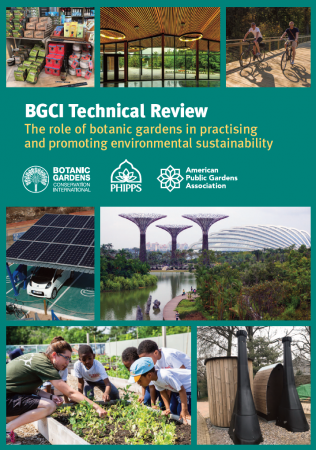BGCI The Role of Botanic Garden in Practicing and Promoting Environmental Sustainability

“In September 2018, BGCI’s 11th International Congress on Education in Botanic Gardens, which was held in Warsaw, focused on increasing the impact of education and public engagement in botanic gardens. Attracting more than 500 million visitors a year, botanic gardens have the opportunity to interact with and influence a large section of society. In this context, environmental sustainability emerged as an area in which botanic gardens could have a significant impact.
There was also the sense that we are currently not doing enough about sustainability, particularly in influencing behavioural change amongst visitors and in this way achieving real impact. The delegates felt that it was appropriate that we show leadership as the world struggles to slow and reverse environmental degradation, and mitigate and adapt to the effects of climate change. This is appropriate because environmental sustainability is consistent with our values, because our visitors are high consumers and influential, and because we have technical knowledge and skills that could be applied to solving problems and providing solutions for a more sustainable planet. In addition, of course, many of BGCI’s member gardens are already changing their practices and interactions with visitors related to water saving, food, energy, carbon, recycling and so on.
This Technical Review, commissioned by BGCI’s International Advisory Council, is a first step towards sharing some of the best practice in our sector (and outside it), then mainstreaming and scaling up such approaches. As with our previous Technical Reviews, it is based on an extensive online survey and literature search. One thing that we expected, and is borne out by the results of our research, is that while many gardens are engaged in changing or modifying their business practices, fewer gardens are challenging or trying to influence their visitors. When it comes to achieving real impact, this is where the big wins are, and this is the area of our work that we need to scale up significantly.” (p.4)
